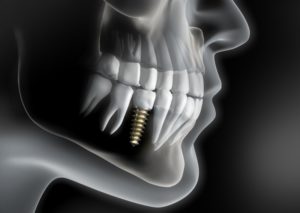
If you have lost one or more teeth, it is vital that you consider your options for replacing your missing dentition. Dental implants are the gold standard in tooth replacement because of the many benefits they offer. However, not everyone is a good candidate for dental implants; there are certain conditions that could make it difficult if not impossible for you to qualify for the procedure. Is bruxism in Plymouth one of them? This blog post discusses that important question.
Bruxism and Dental Implants
Bruxism is unconscious, habitual grinding and clenching of the teeth. It can happen at any time, but it most commonly occurs at night. For natural teeth, it can cause premature wear and tear on the enamel, increase the risk of cracked teeth, and damage the gums.
It also poses a threat to dental implants. The force exerted on the implants during bruxing could affect osseointegration (the process through which the implants bond with the surrounding bone tissue). This may occur because the bruxism can cause the implants’ position to shift in tiny increments. Over time, bruxism can even lead to dental implant failure.
Another issue that bruxism may cause is damage to dental implant restorations (the prosthetic teeth on top of the implants) or the teeth that are directly opposite the restorations. As they grind against one another, damage is likely to occur.
Can Bruxism Disqualify You from Getting Dental Implants?
Fortunately, bruxism will not automatically disqualify you from getting dental implants in Plymouth. Dentists determine candidacy for implants on a case by case basis. If they notice that you exhibit signs of bruxism, they will work with you to put a stop to the problem. Often, this involves the use of a custom oral appliance that places a barrier between the teeth while you sleep, thus preventing clenching and grinding. They might also advise you to consider how you can reduce the amount of stress you experience because stress may cause or exacerbate bruxism.
Keeping an Eye on Your Bruxism
If you are approved to receive dental implants, you must be diligent about continuing to comply with your bruxism treatment for as long as your dentist recommends. You must also visit your dentist regularly so they can check on the health of your new teeth. If your dental team notices indications that your bruxism is posing a threat to your implants, they will make a recommendation to get your oral health back on track.
If you would like to replace your missing teeth with dental implants, schedule a consultation with your dentist — whether or not you suffer from bruxism. It may not be long before you are on the road to a renewed smile.
About the Practice
Dr. Steven Aveni is a general dentist with decades of experience. He has completed advanced training in many facets of his profession, including dental implants. He also offers custom nightguards to address bruxism. To learn more about Dr. Aveni and how our practice may be able to serve you, contact us at 508-812-7692.
